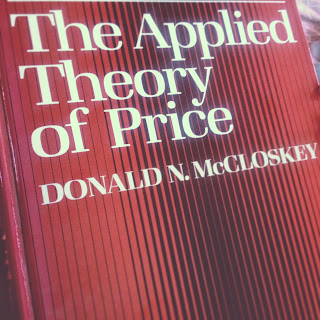My Journey and What It Means for Liberty Advocates
[Originally published at
The Stateless Man website]
The relatively low number of women who self-identify as libertarian is no secret. I was at the 2013 International Students for Liberty Conference (ISFLC) this month and was pleased to see a good number of women in attendance. However, the majority of attendees and speakers were overwhelmingly men.
There are many theories for why this is the case, and if you are interested in some, take a look at the “Girls! Girls! Girls! Marketing Libertarianism to Women” panel sponsored by Young Americans for Liberty at ISFLC 2013. (http://www.youtube.com/watch?v=k1yonojibt4&feature=share).
Right now, though, I would like to provide some of my own experiences and insights on the matter.
Back before I self-identified as libertarian, I considered myself a conservative. Even though I did not agree across the board with conservativism, I could not support Barack Obama in the 2008 election. His stance on abortion was firmly pro-choice, which was the most important issue for me. So I will admit it right now, I voted for John McCain back in 2008 because, though I was familiar with Ron Paul, I did not care enough to do more research.
It was not until 2011 that I was curious enough to dig a little more regarding Ron Paul, which is when I first heard the word "libertarian." Although Ron Paul believes abortion is within state and not federal jurisdiction, he is personally pro-life. (It is. See the Tenth Amendment to the United States Constitution.) That was very appealing to me.
Another attribute I really liked about Ron Paul was his zero desire for power. He does not claim to know what is best for everyone, nor does he want to change the law of the land to impose his personal views. Rather, he looks to a higher authority, the U.S. Constitution. Further, he doesn’t pick and choose when it is convenient to him; he is consistent about it!
Needless to say, I had never been so impressed by a politician. Ron Paul was able to gain my respect and admiration, which led me to trust him on other issues—for example, the Federal Reserve and economic freedom in general. My curiosity perked, I began to read various related books, such as The Morality of Capitalism and Defending the Free Market. These books then led me to become the economic freedom advocate I am today—a reversal from only a year and a half ago.
My journey did not stop there, though. Thanks to the Internet and organizations like YAL, I found a plethora of reading materials and libertarian Think Tanks. These sources helped refine my opinions on several issues, and now I can say that I am basically as libertarian as one can be on every issue.
The most recent issue I feel passionate about is immigration. Open the borders up, baby! Seriously, though, if you care to hear thoughts on this subject, here is the podcast Fergus Hodgson and I recorded at the ISFLC 2013 this past weekend (http://www.blogtalkradio.com/befirstinmedia/2013/02/17/immigration-part). Embed.
Anyway, the broader point I would like to make is that coming up with a "marketing strategy" geared toward women is probably not what liberty-advocates should focus on. After all, given a respect for unique and varied individuals, we do not like to box people into categories. Focusing on individual concerns, men or women, will take time, but it will also create a community of individuals who feel more strongly about the message.
Take me, a pro-life woman. Some would argue that my pro-life stance is not congruent with libertarianism. In fact, some would say, incorrectly, that I am not a "real" libertarian. Not that I care, because I am starting to endorse what Soren Keirkegaard said, “Once you label me you negate me.” Regardless, the pro-life stance was what I had in common with Ron Paul, and that drew me in and caused me to investigate libertarianism more broadly. Then, through my own curiosity and choices, I discovered the beauty and consistency of liberty.
This respect for individuals as distinct also conveys the fact you care about them. People who sense that will in return care about what you have to say to them. I acknowledge this personalized approach is time consuming, but I guarantee it will be effective.
Usually, you will find that individuals are libertarian on at least one issue, so your job is to pinpoint that issue and hook them on it. From that point on, lasting friendships should come naturally. Then you can get into debating nuances, which can be fun.
Finally, this has been said so many times before, but I will say it again. Liberty sells itself. All we really need to do is be likable people. Remember folks, be the person you would like to meet!
